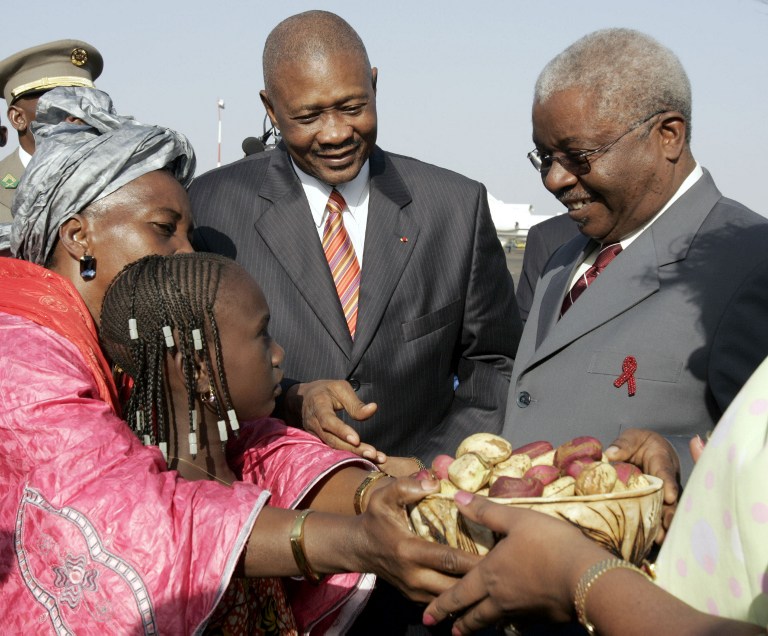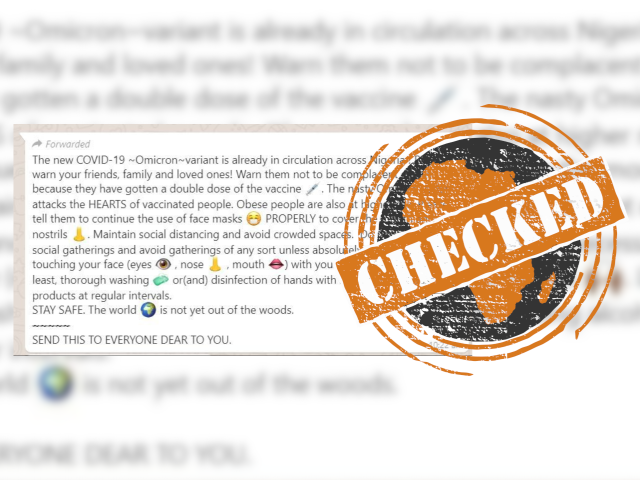A Nigerian professor of ophthalmology – who made headlines when she asserted that the ewedu herb could protect against Ebola – has also claimed that eyedrops made from bitter kola can treat glaucoma.
According to the country's Guardian newspaper, Professor Adebukola Adefule-Ositelu said that she is “successfully treating patients with glaucoma” using bitter kola extract.
The newspaper added that she is “known for her patented eye drops made with bitter kola for preventing blindness in patients with glaucoma”, so it appears that she has some interest in promoting the efficacy of the treatment.
But is there any evidence to support her claim?
One report gives supporting evidence…
Bitter kola (or garcinia kola) is a tree found in West African rain forests. Extracts from the seeds, nuts and bark have long been used in traditional medicines and have been found in studies to contain a bioflavonoid complex of chemicals with a wide range of potentially therapeutic effects.
But is there any evidence that bitter kola can effectively treat glaucoma, a condition which can cause gradual loss of sight, usually due to build-up of pressure within the eye?
According to the international medical database PubMed only one randomised controlled trial has been published in a peer-reviewed journal. The study – which was carried out by a team of Nigerian researchers led by Adefule-Ositelu and published in 2010 - compared an extract of bitter kola used as eye drops with timolol eye drops, a drug commonly used for treating glaucoma.
The results appeared to indicate that the eye drops were as effective as timolol in reducing intra-ocular pressure in patients with glaucoma. Lowering pressure is important to help prevent blindness by reducing further damage to the optic nerve.
But its reliability is questionable

However, a number of issues limit the reliability of the study.
A major point of concern is the fact that the paper says the use of the drops was approved for the study by the “Pharmacy Council of Nigeria”. We could find no evidence of the existence of any such body. The Pharmacists Council of Nigeria registers and regulates the practice of pharmacists, not drugs. The regulation of drugs for clinical trials is the responsibility of the National Agency for Food and Drug Administration and Control (NAFDAC). This should have been the body to approve the experimental use of the eye drops, although it has been suggested by a Nigerian lawyer recently that the regulation of clinical trials in the country is not as clear as it should be.
Further, the bitter kola drops are not found on the list of registered drugs displayed on NAFDAC’s website. Calls to the numbers listed by the agency online did not connect, so Africa Check was unable to clarify the status of the drug. As such, it is unclear whether it has been licensed and approved for treatment, or whether it was even approved for testing.
Another issue was that the research documents cited in this paper to indicate that garcinia kola was safe in human eyes do not appear to have been designed to look at safety, judging from the abstracts. We could not access the original papers. One was an in vitro study, meaning that it tested outside a living organism, not on animals or humans. And another was a use of garcinia kola eye drops in treating adenokeratoconjunctivitis - popularly called “Apollo” in Nigeria - which was not a randomised controlled trial.
Further omissions
There were further omissions within the paper. For instance, the section describing the masking procedure - the process by which it is ensured the investigators and patients do not know which treatment they are receiving, in order to minimise bias - did not provide information about how similar the characteristics of the two treatments were. If the treatments were distinctly different, and patients knew which they were receiving, that could introduce a bias.
There was no detail in the paper about how the allocation schedule was kept and maintained. An allocation schedule in a randomised controlled trial is the schedule that determines which treatment a trial participant gets. A good study should present that information in order to show that precautions were taken to avoid bias.
In addition, the paper notes “poor drug compliance initially in the majority of subjects”, meaning that patients did not take their treatment as planned. “Most subjects exhausted their assigned drug earlier than expected and stopped further treatment a few days prior to the upcoming follow up.”However, it does not describe how this was taken into account in the analysis.
Conclusion: The evidence is questionable
The claim, while supported by more research than that surrounding the “cure” for Ebola – for which Professor Adefule-Ositelu has been threatened with prosecution – should be questioned.
Only one paper appears to document the therapeutic powers of these eye drops. Its reliability is undermined by several omissions. There is no evidence that the drug is registered and approved for use by the proper body.
Aside from that single study – which was carried out by a team of Nigerian researchers led by Adefule-Ositelu – Africa Check could find no research confirming whether bitter kola is an effective treatment for glaucoma.
To prevent glaucoma, the UK recommends regular eye checks in adults, especially those who have a family history of glaucoma. More information is available in this US National Institute for Health booklet.
Dr Ike Anya is a Nigerian doctor, specialist in public health medicine, and co-editor Nigeria Health Watch.
Edited by Eleanor Whitehead





Add new comment